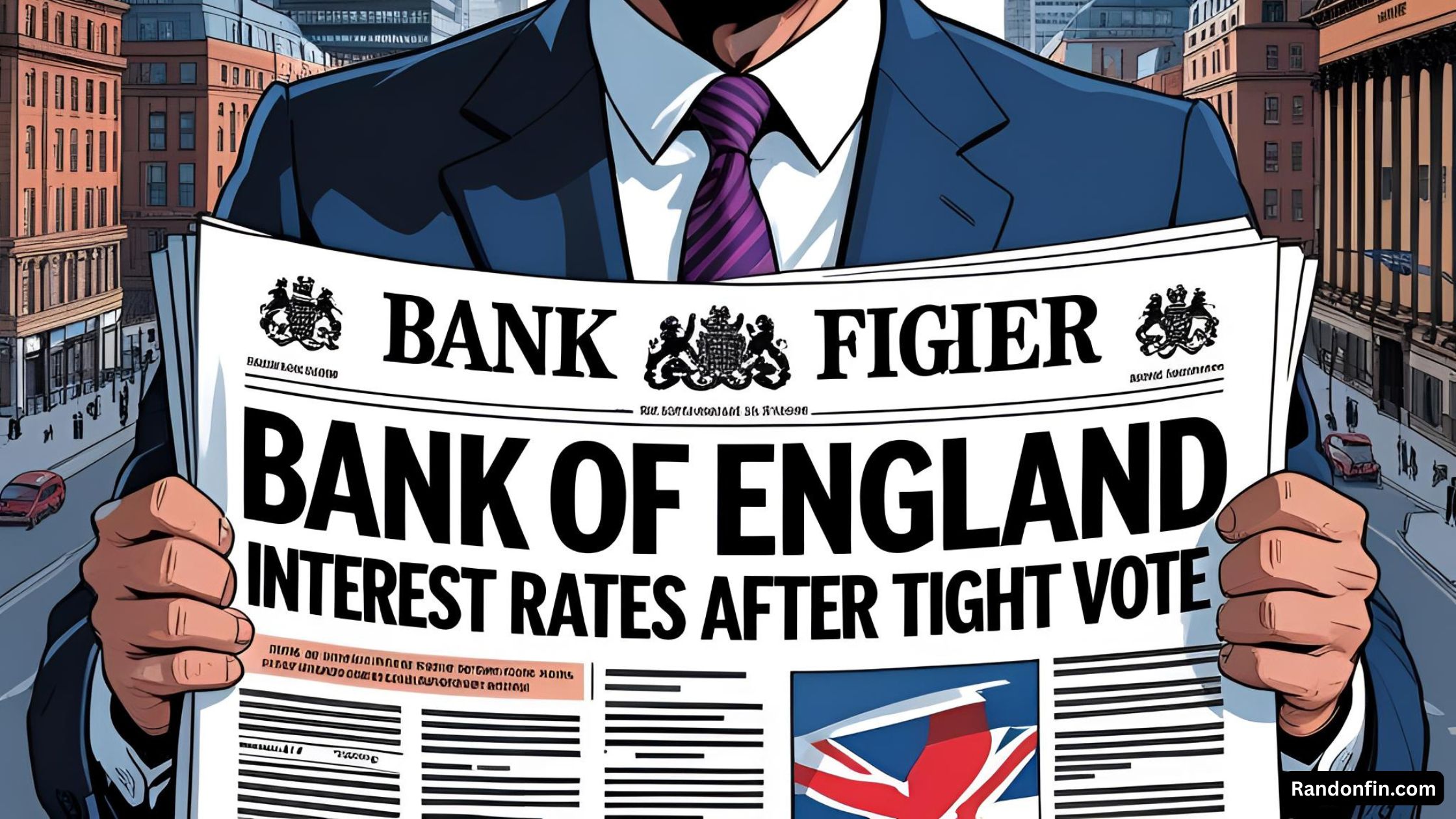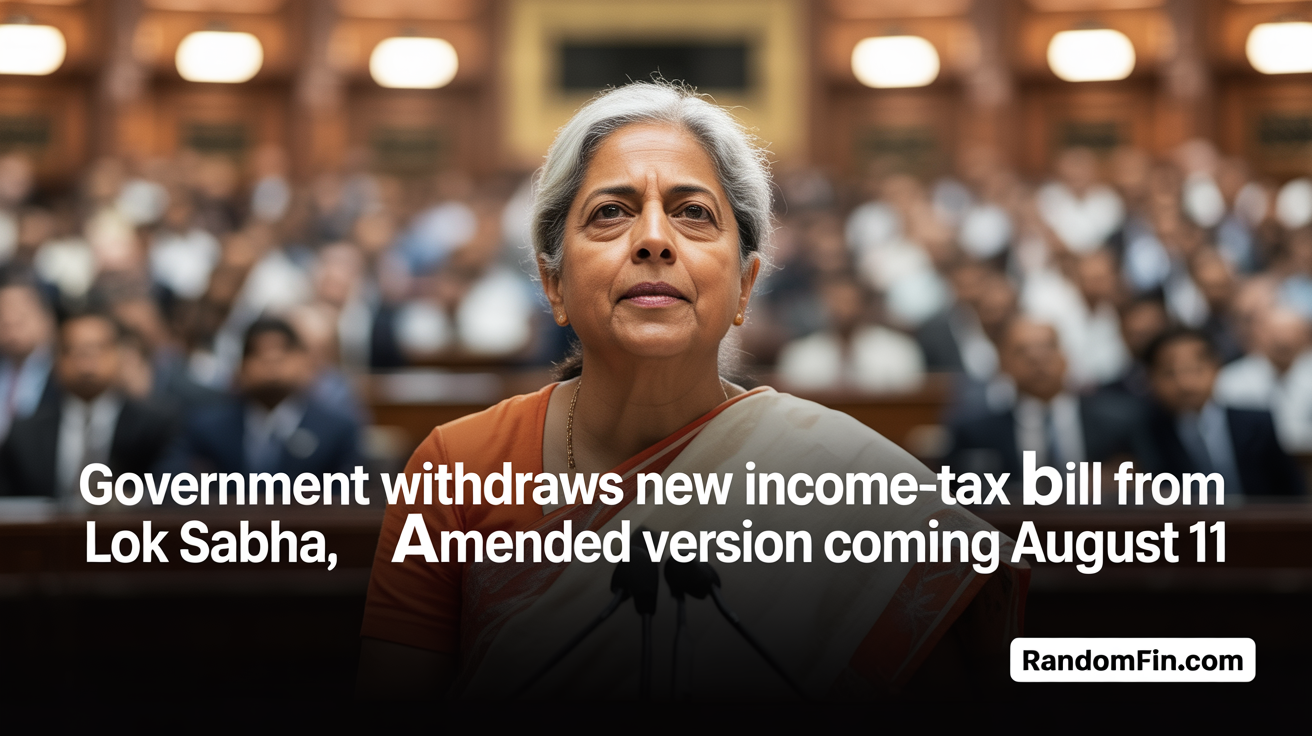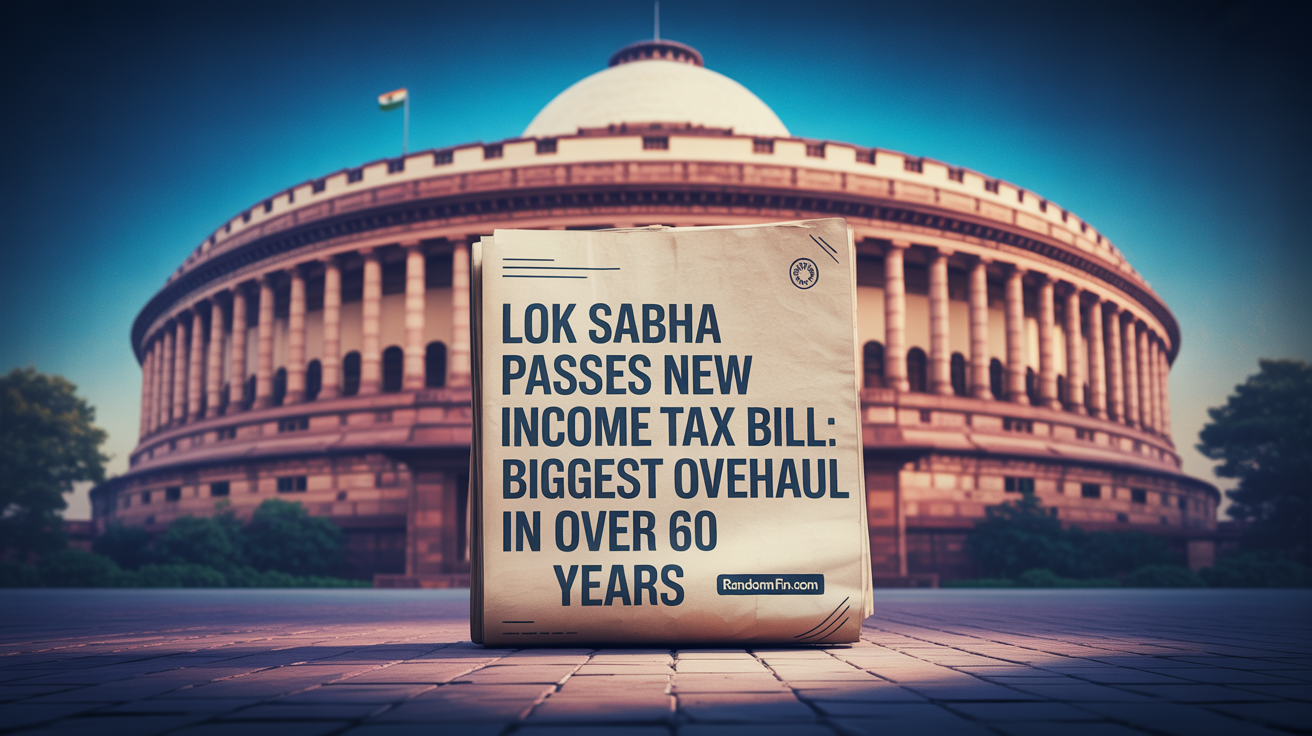The Bank of England has officially lowered its base interest rate from 4.25% to 4%, marking a key move to support the UK economy as inflation remains high and growth slows down. The decision was expected by many economists but came after a very close vote among Bank policymakers.
A Narrow Decision by the Central Bank
The Bank’s Monetary Policy Committee (MPC) voted 5 to 4 in favor of the rate cut. It was one of the closest votes in recent years, showing how divided members are about the direction of the UK economy. Some members wanted to hold rates steady due to persistent inflation, while others pushed for a cut to boost growth.
This is the fifth rate cut since mid-2024 and brings borrowing costs down to the lowest level since March 2023.
Also, Read: PM Modi Responds to Donald Trump’s Tariff Decision: “India Will Not Compromise on Farmers’ Interests”
Why the Bank Cut Rates?
The Bank of England made this move to support businesses and households struggling with higher living costs and a slowing job market.
- Inflation is currently at 3.6%, still above the Bank’s 2% target. It is expected to rise slightly to around 4% in September, mainly due to higher food and energy prices.
- Unemployment has climbed to 4.7%, showing signs of a weakening job market.
- Economic growth has been sluggish, with businesses cutting back on spending.
In this situation, lower interest rates can help reduce borrowing costs and encourage more economic activity.
| Topic | Key Points |
|---|---|
| New Interest Rate | 4.00% (reduced from 4.25%) |
| Vote Result | Passed by 5–4 vote |
| Inflation Rate | 3.6%, expected to rise slightly |
| Unemployment Rate | 4.7% |
| Effect on Mortgages | Monthly payments may decrease |
| Effect on Savings | Savings interest likely to fall |
| Next Rate Move? | Possibly in 2026 |
What Governor Bailey Said?
Bank of England Governor Andrew Bailey called the decision “finely balanced.” He warned that future changes would be made carefully to avoid pushing inflation higher again. “We are acting to support the economy, but we remain watchful,” he said during a press briefing.
Also, Read: Apple to Invest $600 Billion in the U.S. as Tim Cook Applauds Trump’s Role
What This Means for You?
This rate cut will have a direct impact on your personal finances.
Lower Mortgage Costs
If you have a tracker or standard variable rate (SVR) mortgage, you may see your monthly payments go down. Major banks like HSBC, Barclays, Lloyds, and Nationwide have already announced mortgage rate reductions, some effective immediately.
Lower Savings Returns
Savers may earn slightly less interest on their savings accounts. Financial experts suggest comparing different banks or considering fixed-rate accounts to lock in better returns.
Business Borrowing Gets Cheaper
Small businesses and startups may also benefit from lower loan rates, which could support investment and hiring.
Also, Read: Trump Raises Tariffs on Indian Imports to 50% Over Russian Oil Purchases
Market Reaction and What’s Next
Financial markets responded quickly after the rate cut. The British pound strengthened slightly, and government bond yields ticked up. Many investors now expect the Bank to pause before making more rate cuts. The next possible move may not come until early 2026.
Political Response
UK Chancellor Rachel Reeves welcomed the decision, calling it a positive step to support the economy. She said it would help both families and businesses manage through uncertain times, but added that inflation still needs to be brought under full control.













